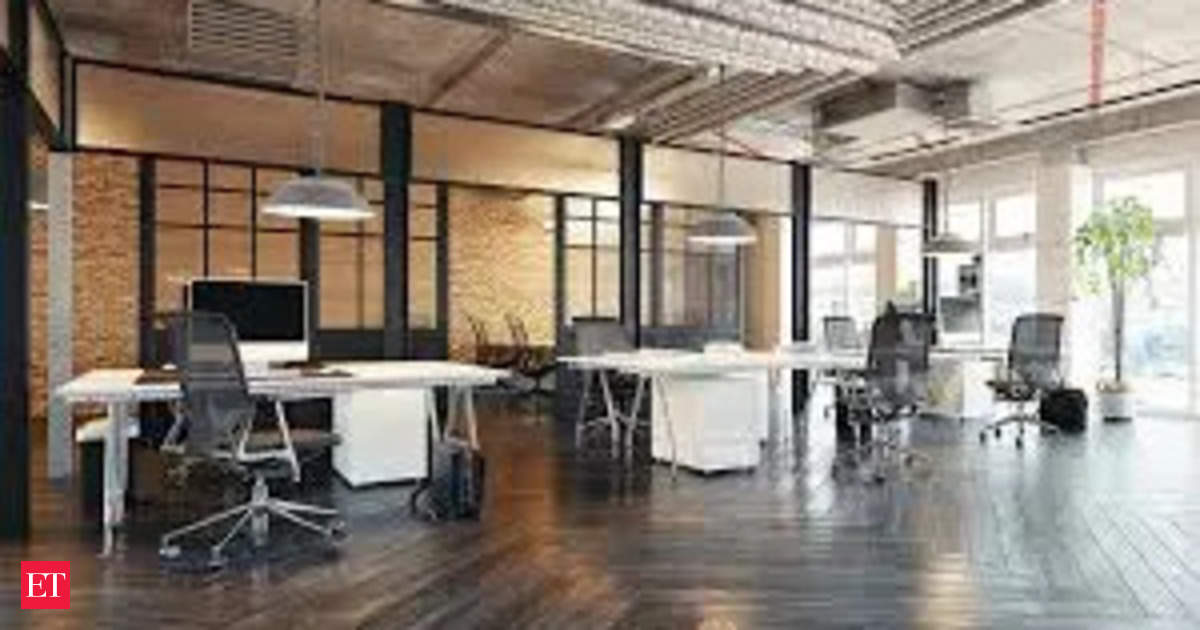In the recent survey-based report “Flexible Spaces: Reshaping India’s New Age Office Market” by Colliers, it is stated that over 80% of occupiers are planning to expand their office portfolio Using flexible spaces In the near future.
The report highlighted that large corporations are increasingly incorporating flexible spaces into their real estate Footprint. This growing adoption of flexible spaces is primarily due to its ability to add flexibility to real estate portfolios and manage costs. Advantages include increased productivity, safe and technology-enabled spaces, as well as sustainable features, all of which strengthen the business case for flexible spaces.
“As flexible space offerings transform from a niche to a mainstream trend, they are expected to increasingly define the contours of Grade A Office Space Demand in India has increased. According to the report, 60% of occupiers are likely to have a flexible office share of 20% or more over the next 3-5 years, up from 40% currently. Previously, flexible spaces were predominantly occupied by startups. However, in the next few years, more than two-thirds of the properties will be occupied by startups. expansion “Across all occupancy segments, it will be through flexible spaces. Notably, over 80% of the expansion in the technology, engineering and manufacturing and healthcare sectors will be through flexible spaces,” said Arpit Mehrotra, General Manager, Office Services. Indian Miners
The role of flexible spaces has evolved beyond traditional support centers as they now serve as cost-effective alternatives with enterprise-grade amenities. About 45% of mid-sized companies and 35% of large enterprises have integrated flexible spaces into their core business operations. Notably, 40% of occupiers in the technology sector are leveraging flexible spaces due to their increasing technological capabilities, the report mentioned.
“Workspaces have been steadily evolving to become hubs for collaboration, innovation, well-being, etc., and flexible spaces provide one-stop solutions for the new-age workspace. With the maturity of the flexible space market and enterprise-grade services on offer, occupiers are also willing to accept relatively longer commitment periods. About three-quarters of the surveyed occupiers, including multinationals and large domestic occupiers, are positively inclined to accept relatively longer commitment periods. In the coming years, the average commitment period for flexible spaces can potentially reach close to 3 years, a significant increase from the typical leases of less than a year in the pre-pandemic period,” said Vimal Nadar, Senior Director and Head of Research, Colliers India. The report mentioned that location importance remains paramount for occupiers, with about 60% of respondents identifying it as the most important factor for expansion. Interestingly, during expansion, occupiers tend to favour flexible workspaces with attractive offerings located in core areas over those located in peripheral locations. Looking ahead, about 45% of the surveyed occupiers are considering future expansion through flexible workspaces in central business district (CBD) or secondary business district (SBD) locations within tier-I or tier-II cities. With respect to workplace strategy, flexible workspaces are poised to promote distributed working models. About half of the largest companies, including Global Capability Centers (GCCs) and Multinational Corporations (MNCs), anticipate that flexible workspaces will serve as both hub and spoke offices in the coming years, he said.
According to industry experts, the rising share of flexible spaces in the demand for Grade A offices, coupled with changing occupier preferences, has made flexible spaces a prominent feature of the Indian office market. As occupiers reveal their future portfolio expansion plans, the survey results of the report suggest a strong growth trajectory for flexible spaces in India in the coming years. The survey covered a wide range of start-ups, multinationals and GCC countries and focused on senior management personnel, including key decision makers in real estate, administration, corporate strategy and related areas.
Disclaimer:
The information contained in this post is for general information purposes only. We make no representations or warranties of any kind, express or implied, about the completeness, accuracy, reliability, suitability or availability with respect to the website or the information, products, services, or related graphics contained on the post for any purpose.
We respect the intellectual property rights of content creators. If you are the owner of any material featured on our website and have concerns about its use, please contact us. We are committed to addressing any copyright issues promptly and will remove any material within 2 days of receiving a request from the rightful owner.

